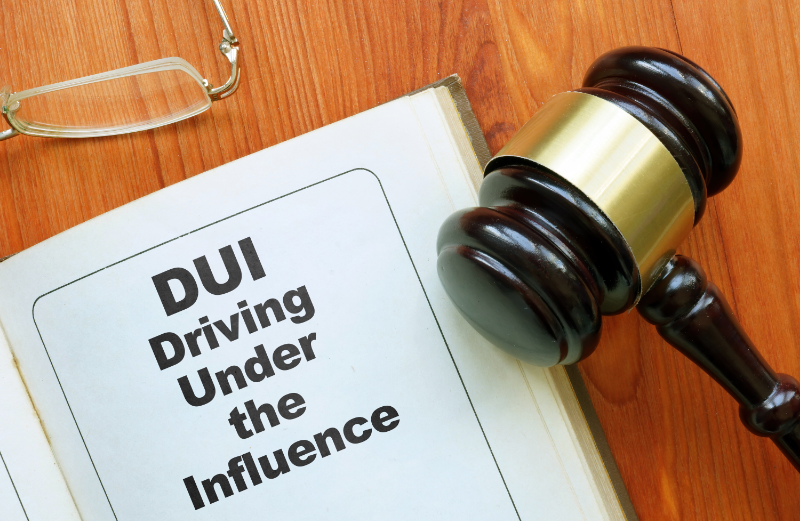Going to jail is one of the most terrible things that could happen to you. It's not only lonely but will leave you asking yourself countless questions. One of the general questions you are likely to ask yourself is how you will secure your release without a reliable source of income. The criminal justice system in our country can be a bit unfair. For instance, you must post bail to secure your release even if you are not employed.
Whether the court has issued a warrant for your arrest or you are a prime suspect in a crime, you will be glad to know that there are various ways to post bail, even if you are unemployed. However, the bail bond process might be complex for the unemployed. Not to worry because you have come to the right place. Today, we will share more information on how you can post bail if you are unemployed.
Working With a Bail Bondsman When You're Unemployed
One of the options you might consider when you need to post bail is to work with the best bail bonds company in California. Unfortunately, bail bond companies might hesitate to work with you because you are unemployed. This is because they assume you don't have the financial capacity to pay it back and cover all the related expenses. Unsurprisingly, thousands of people in California are jailed while awaiting trial because they can't afford to post bail. You can also consider getting a warrant check in San Diego if you don’t know where to start.
If you don't have money to secure a bail bond, you will be glad to know that you can secure your release using personal collateral. Better yet, you can find a trustworthy co-signer to help you secure a bail bond. Understanding what both methods entail is advisable before making the final decision. Let's discuss these methods in detail below.
The Co-Signer Option
As mentioned earlier, finding a reliable co-signer is one way of securing a bail bond if you are not employed. When you find a co-signer, you won't have to pay the bail amount on your own. Instead, the co-signer will act as a guarantee that you will obey all court orders. It's important to note that the person you choose as a co-signer must show proof of income and employment. The co-signer can be anyone you trust.
However, it is advisable to pick someone you have a stronger relationship with to convince the bail bondsman to post bail for you. Your best bet is a relative, long-term friend, co-worker, or spouse. Some states allow co-signers from different states. So, talk to a local bail bonds company to find out if they accept co-signers from other states.
When choosing a co-signer, it's best to ask yourself three main questions:
Ask yourself whether the co-signer will help you show up to court for all the scheduled appearances until your trial is over.
Look at the credit history of the person you have in mind. A good co-signer should have a good credit history and strong financial backing.
Choose a co-signer with good job history.
The bail bondsman will be more inclined to accept a co-signer who receives a regular paycheck.
Option Two: Collateral Bond
If you can't find a co-signer, don't worry. Another option you can use to secure your release is a collateral bond. You must use your personal property to secure your release from jail. Different forms of collateral can be used to secure a bail bond if you are unemployed. However, the value of the collateral must be equivalent to the value of the bail bond. Some of the personal property you can use to secure a bail bond if you are unemployed include:
Your vehicle titles
Mortgage deeds
Jewelry
Gold and precious metals
Credit card payments
Investment accounts
Saving accounts
Electronics
You still have to pay a set fee even after putting up collateral. The good news is that the bail bonds company will return the collateral after you show up for all your court appearances and hearings. If you fail to honor the agreement, the bail bondsman will have no option but to use your collateral to cover the costs of your bail bond.
Why Work With a Licensed Bail Bond Agent When You are Unemployed
Like everyone else, you will likely be frustrated and confused after an arrest. You might be tempted to handle the entire bail bond process independently due to fear and confusion. However, it's always wise to enlist the services of an experienced bail bond agent instead of handling the process on your own. Working with the best bail bonds company is the best way to secure a bail bond in no time. The experienced bail bonds agents at Golden Boy Bail Bonds understand how the California bail bond process works.
Additionally, our bail bond agents have a long-standing relationship with court officials all over California. They are ready to use this trust to make the process affordable, efficient, and stress-free. They will also use their expertise to walk you through different bail bonds to help you find the best bail bond for your unique situation.
Beyond that, working with a local bail bond agent will save you money and unnecessary headaches down the line. You can even ask your bail bond agent to give you flexible payment plans.
Choose the Most Affordable Bail Bonds in California
It's almost impossible to secure a bail bond if you don't have a reliable source of income in California. Luckily, you only have to find the most affordable bail bonds in California. As the premier bail bonds company in CA, you can turn to us for the lowest prices and flexible payment plans. We are available 24/7 to help you get out of jail in the shortest time possible. We are happy to post bail bonds for you even if you are unemployed. You only need to have a co-signer or provide collateral. Take advantage of our fast approvals by phone and email to secure your release in minutes.
Take the Next Steps Today
Our local bail bond agents are ready to advise you on how to post bail in California if you are unemployed. Get in touch with our experienced bail bond agents at Golden Boy Bail Bonds to learn more about our services and receive expert guidance.













